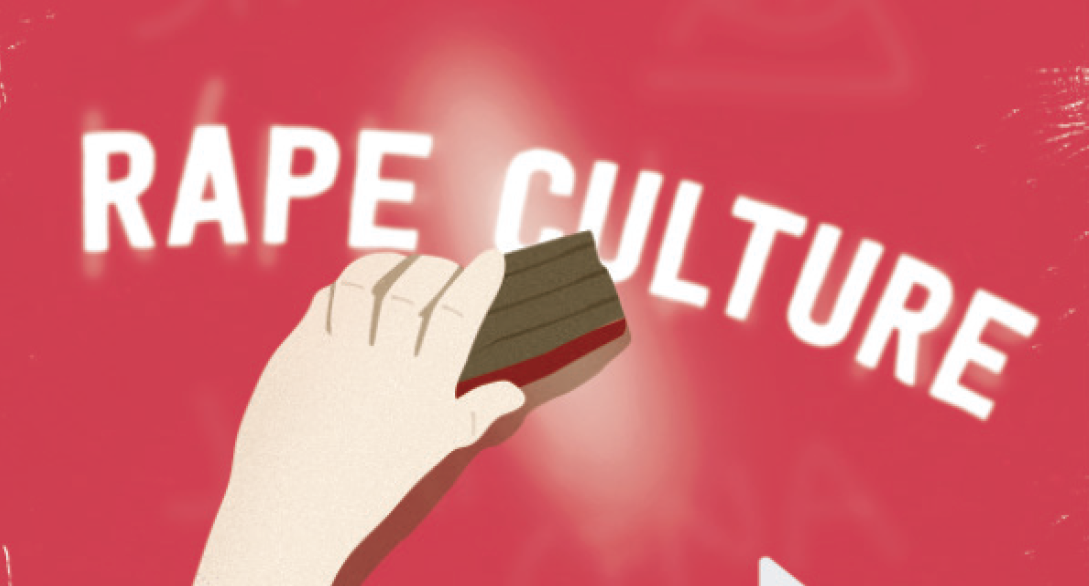Your donation will support the student journalists of Francis Howell North High School. Your contribution will allow us to purchase equipment and cover our annual website hosting costs.
The Elephant In the Room
Published: February 11, 2016
Rape. It’s just four letters, one word, with no synonym that packs the same punch. Written down on paper, there’s very little confusion as to what those four letters mean, and by high school, most students know why the word rape carries the resounding power that it does. And most students know that rape is not okay.
“Rape would be a criminal offense,” counselor Mary Kerr-Grant said. “If a student came and said ‘I was raped on the premises,’ I would immediately contact the police.”
At FHN, Freshman Health teachers Jenelle Louis-Bauer and Chris Brown bring in Resource Officer Sarah Brueggeman and Lauren Klepac, a victim advocate from the St. Charles Prosecuting Attorney’s Office, to discuss the importance of consent and the legal implications of sexual assault. Due to mandatory reporting laws and Title IX, a federal law that prohibits discrimination on the basis of sex in schools, schools must have protocols in place for handling reports of sexual abuse.
“Our building is really, really strong if a student comes with a sexual harassment claim,” Kerr-Grant said.
Rape culture. It’s just two words, three syllables, 11 letters. Despite the extra characters, rape culture is a topic that is rarely talked about and is much harder to recognize. But rape culture is a silent killer – the influence it has on society is subtle, but the effects it has are just as dangerous as rape itself.
“It’s not a conversation a lot of people want to have,” Freshman Health teacher Chris Brown said. “Parents don’t want to have it, and teachers are nervous about bringing it up in class, for fear of people not taking it seriously or teachers [not] being able to talk freely without some parent or administrator getting upset about something that can be so controversial.”
The conversation about rape culture is often accompanied by confusion. While the phrase has had a growing presence on social media over the past few years, the definition is sometimes still blurred and unstable. But rape and rape culture have two different meanings. Rape culture encompasses the normalization of rape, that it’s okay to promote sexualized violence on TV and in video games, that victims are the one to blame for what happens to them.
However, rape culture is a social issue that goes mainly unaddressed in schools. Rape jokes are still a prevalent form of humor amongst teenagers, unrealistic beauty standards still dominate Twitter and Facebook feeds, and many students have experienced the effects of dress codes at one point or another.
“They’re quiet [when discussing rape culture],” Louis-Bauer said. “I think a lot of [students] see it, and when they really start to recognize it, I think it scares them.”
The phrase itself carries a lot of prejudice. Some people are hesitant using it due to some of its isolating connotations. Elisabeth Condon, an FHN graduate and the Sexual Assault Prevention Committee Chair in Truman State University’s Student Government, tries to avoid using the term rape culture, as some believe that it excludes the idea that men can be victims.
“[Rape culture] tends to be alienating for male victims,” Condon said. “Men can also be affected. [The committee] tries to proliferate that rape can happen to anybody.”
At Truman State University, the Sexual Assault Prevention Committee is working on updating posters and information around the school so that students know how to report instances of sexual abuse and where they can find help. FHN used to hold a presentation to raise awareness for sexual assault, including a video on dating violence, for the junior class, but last year was the first year that it wasn’t held since the video seemed too outdated to use.
Without any discussion about rape culture at school, students won’t be taught to recognize the problems in advertising, television and pop culture that perpetuate the normalization of rape. Those 11 letters should carry the same punch as the first four, but without any attention, the term risks getting lost and ignored by society.
“It’s important to educate people about it,” Kerr-Grant said. “I think a lot of people don’t think twice about it but it’s there.”

